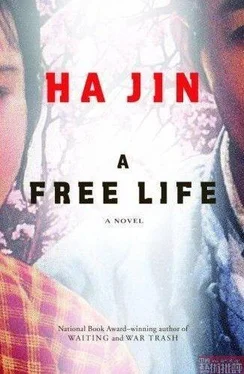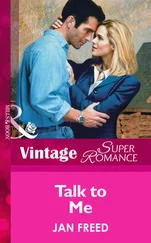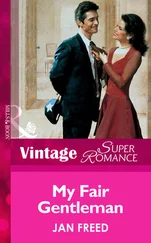"Danning must be doing quite well," Nan said. "He's clever and knows how to sell. But don't take his novella too seriously."
"Look, this is Harvest."
"So? If you tried, you could write better. At least you won't use that many double exclamation marks." "Are you jealous of him?"
"I never want to be a writer-why should I be jealous? Trust me, you can do a better job."
"Heavens, you're so arrogant."
" He tried too hard to please the reader. Also, this kind of writing might mislead the Chinese who have never been to America."
For some reason Pingping simply wouldn't praise Danning's accomplishment. Why did she judge the novella that way? Nan pondered her remarks and concluded that he agreed with her. He couldn't accept Danning's fiction as literature either. It was at most a piece of creative reportage written by an experienced hack. Yet obviously his friend was making headway in a direction totally different from his own. Maybe someday Danning might grow into a literary figure in China, where the vicissitudes of celebrity defied logic. Nan decided to write to his friend.
NAN didn't write to Danning immediately. For several days he'd been experimenting with moo shu, a Mandarin dish he hadn't cooked before. But in his childhood he'd had spring pancakes once a year, which were prepared and eaten in the same way as moo shu except that his mother had used soy paste in place of hoisin sauce. In China the term "moo shu" referred to dishes whose main ingredient was wood ears, sauteed with eggs or pork or shrimp, and they had little resemblance to the Americanized moo shu. Nan realized that the beauty of this dish consisted in the flexible choice of its ingredients. You could saute meat, seafood, eggs, and vegetables individually, so you were free to make the dish in your own way. This also meant moo shu could be various kinds, sumptuous, or simple and light, or even vegetarian. What's better, Nan could use high-quality tortillas instead of pancakes and serve them after warming them up in the microwave; this would save a lot of work. So he resolved to add moo shu to their menu, not as a regular offer but as a house specialty.
He put a plate of moo shu he had wrapped and cut on a table and asked his wife and Tammie to try it.
"Mmm, it's great!" said Pingping, chewing with relish.
Tammie loved it too. She strode to the storage room and shouted, "Hey, Taotao, come out and have some moo shu."
The boy had just gotten off the school bus and was paring carrots with a scraping knife. After washing his hands, he came out, rubbing his eyes, and yawned. He took a bite of a piece of the tortilla wrapped around bean sprouts and slivers of lean pork. "Is this a taco or something?" he asked.
"No, it's moo shu," Nan said.
"Oh, I remember it!" Taotao's eyes gleamed as he was chewing. "My grandpa cooked this too, but he put chives into it. It tasted much better than this."
"We cannot offer sauteed chives to our cahstomers, who won't like zat," said his father. "Also, zat's too expensive. Maybe we can use chives for ourselves once in a while."
In fact Nan seldom cooked moo shu for themselves. The Wus ate at the restaurant most of the time, just whatever was available. There were choices for Taotao anyway, so the boy wouldn't complain.
When Nan finally had spare time, he wrote a letter to Danning. It read:
August 3, 1992
Dear Danning,
I cannot say how amazed I was to find your novella in the last issue of Harvest. Congratulations! I am impressed and can see that you are on your way to an illustrious career. I wish you all the good luck and keep my fingers crossed for you.
I assume that you are married by now. If so, give your wife my regards. My family is well, and we moved to Georgia last summer. Now we live in a northeastern suburb of Atlanta, where I run a small restaurant. The work is hard and weary; most of the time Pingping and I have to put in more than twelve hours a day. But so far we have managed to survive. In truth, we have prospered to some extent. We bought a house nearby, which has a lake, about twenty acres large, in the backyard. You see, I am a laborer now, a professional cook, but I won't complain. Frankly, I feel rather content with our situation. At length we have settled down in a corner of land we can call home.
The other day when I was reading your story, I felt as if we had been separated for a lifetime. You must be a different man now, but I'm sure that with this publication your life must have changed, opened to great expectations.
Please keep me posted about your new publications. There is a decent Chinese bookstore here that carries some magazines published in China, and I can follow your success from this side of the earth. Work hard and write with more heart and vision. Your friend,
Nan Wu
He thought about expressing his view on the novella candidly in a postscript, but changed his mind, unwilling to let Danning suspect he was jealous. He didn't know Danning's current address, so he sent the letter in care of the editorial department of Harvest, trusting they'd forward it to him.
In front of the Dollar Store at Beaver Hill Plaza stood a mailbox. Nan went out to drop the letter. It was muggy and hot outside, a mass of heat rubbing his face, but two adolescent boys were biking around in the parking lot, crying at each other happily and from time to time letting go of the handlebars of their bicycles while their legs kept pumping away. The heat didn't seem to bother them at all. These days it was so humid that when Nan drove on the street, he often saw waves of water ahead of his car. He had thought he might be losing his mind, seeing things, but Pingping told him she had also seen such puddles on the asphalt. Overhearing them, Tammie giggled and said, "That's just a mirage. It always appears on roads in the summer, even in the North too." Tammie had once lived in upstate New York for a year and had dreaded the winter there.
"That's true," agreed Pingping, "but you see it here more often."
Nan had never seen such shadowy water on the roads in Massachusetts, but again, he could have been too absentminded to notice it. How he hated the Georgia summer, when the damp heat reduced people's appetite, causing his business to flag, its clientele dwindling. Mr. Wang assured him that this was normal and that business would pick up after mid-September.
JANET and Dave Mitchell came to dine at the Gold Wok one evening. Dave was six foot one and seemed to have gained weight recently, weighing at least 240 pounds. He was a little bald and wore glasses that barely shielded his large gentle eyes. Both Nan and Ping-ping liked this reticent man, who never raised his voice and always smiled like a young boy when Tammie brought him and his wife their order, to which Nan would add something extra, a plate of teriyaki beef or a bowl of Peking ravioli. Dave would wave at Nan and say in a thin voice, "Thanks!" When he lifted a teacup, it would almost disappear in his huge hand, whose skin was as fair and hairless as his face.
Dave had once told Nan that he was a Republican, though he had grown up in a housing project in Camden, New Jersey, raised by his mother alone. Nan wasn't a citizen yet and couldn't vote, or he'd have argued more often with Dave over politics and the upcoming presidential election. He couldn't understand why Dave, a beneficiary of the welfare system, was adamantly against it. Once he asked him about this, and Dave replied, "I don't want to pay too much income tax and I hate a big government. If the Democrats win the election, they'll jack up taxes again."
"But you don't have to be a Republican to oppose a big gahvern-ment," Nan said.
"No. I may join the Libertarian Party anytime."
"Why not be a Democrat?"
Читать дальше












